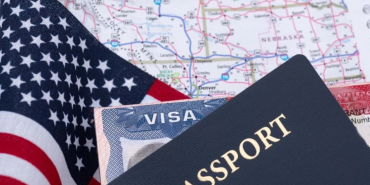Kenyan Senior Nurses Venture Abroad for Better Prospects

Kenya's recent labour agreements with foreign countries have sparked concerns about experienced nurses seeking employment opportunities abroad.
Every year, a large number of healthcare workers move to different parts of the world, such as the United States, the United Kingdom, and the Middle East. In 2021, Kenya made an important deal with the United Kingdom, which allowed 20,000 nurses to move to hospitals in the UK. Additionally, in January 2024, Kenya signed an agreement with the Kingdom of Saudi Arabia, which permitted 2,500 nurses to relocate there.
Over 160,000 Kenyans are currently authorized to work in the United States, with a notable number employed in healthcare. Alfred Obengo, the ex-president of the National Nurses Association of Kenya, stresses the inevitability of this worldwide labour migration. Obengo credits technological advancements for enabling the flow of information. He says that experienced nurses become aware of better prospects overseas, they are enticed by the potential for improved working conditions and career growth.
Kenya is witnessing a notable exodus of skilled nurses who are actively seeking employment overseas. These nurses have acquired vast experience and expertise in different healthcare domains. Regrettably, their invaluable skills remain unacknowledged and undervalued by the county and national governments. As a result, they have reluctantly chosen to depart from their homeland in pursuit of more promising prospects elsewhere.
According to Obengo, to tackle this problem, both levels of government need to shift their mindset towards healthcare professionals. Rather than considering them as problematic individuals, they should be regarded as valuable resources and treated as collaborators. He affirms that this approach would enable the government to actively involve healthcare workers and establish a comprehensive strategy for human resources in the long run. This strategy would entail evaluating the present and future requirements of healthcare professionals in terms of both quantity and quality.
“The govt is always reacting not responding to the issue of the day. We need a long-term human resource plan,” he explains.








Comments
Whoever wrote this aticle is…
Permalink
Whoever wrote this aticle is clueless.
- Kenyans immigrants are minority in most of the countries in question. Infact countries like Philippines have specialized in exporting nurses to the mentioned countries.
- Immigration patterns have shown that labour generally moves to where it well regarded and rewarded. So Kenyan nurses are just following a rational and natural trend that is going on around the world, not in Kenya alone.
- In terms of nurses pay back in Kenya. If you look at the Healthcare budget as a percentage of Kenyas gdp you can appreciate and understand why the medical profession is not well paid compared to their peers where the Healthcare budget is higher.
- What is the future ? It's simple embrace labour immigration. Train more nurses and encourage them to apply to the various countries that pay them better and where they are treated with more respect.
Add new comment